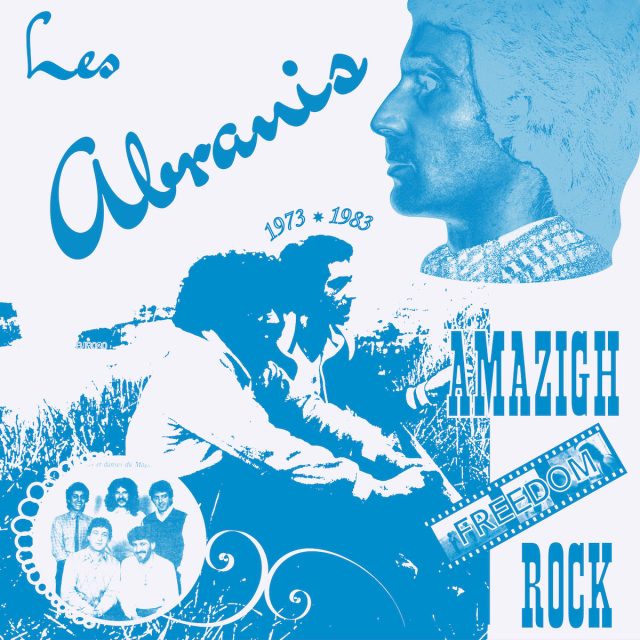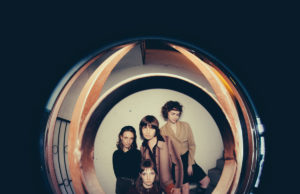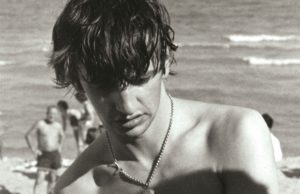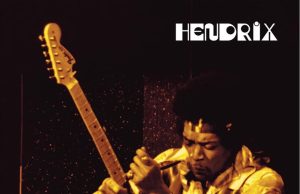THE EDITED PRESS RELEASE: “Abranis were a pioneering Algerian band that blended traditional Berber music with western rock, folk, disco, and funk — all the while proudly celebrating their Kabyle heritage and taking the Maghrebi music scene by storm from Algeria to France, with the latter becoming a new creative center for the Kabyle diaspora. Amazigh Freedom Rock 1973-1983 — which follows the 2018 release of Chenar le Blues / Avehri — is a comprehensive look into their discography, from the garage-rock experimentations of their early days to their lushly orchestrated North African fusion masterpieces of the 1980s.
The Abranis story begins in the mid-’60s, when two young Algerians crossed paths in one of Paris’ bohemian neighbourhoods. Both were Kabyle, the Berber people from Algeria’s northern regions, and both had escaped the repression that began with Algeria’s 1962 independence and the establishment of its new, conservative constitution. “They were considered a threat for the newly created nation-state, since they belonged to another nation, much older than the Algerian state and even the muslim/arab’s presence in North Africa,” explains musical anthropologist Simon Debarbieux, who wrote the liner notes for the compilation.
The two young men, Shamy El Baz and Karim Abdenour, shared more than a common background: They both loved rock music, and both were passionate about fostering a modern Algerian sound, as inspired by Kabyle rhythms and melodies as it was by western rock. Paris proved to be the ideal hotbed for their creativity. “Kabyles were the first immigrants to settle in France from Algeria at the beginning of the 20th century, opening bars and being active in musical production” explains Debarbieux, “their community was quite large and united, and different to that of the Algerian-Arabs.”
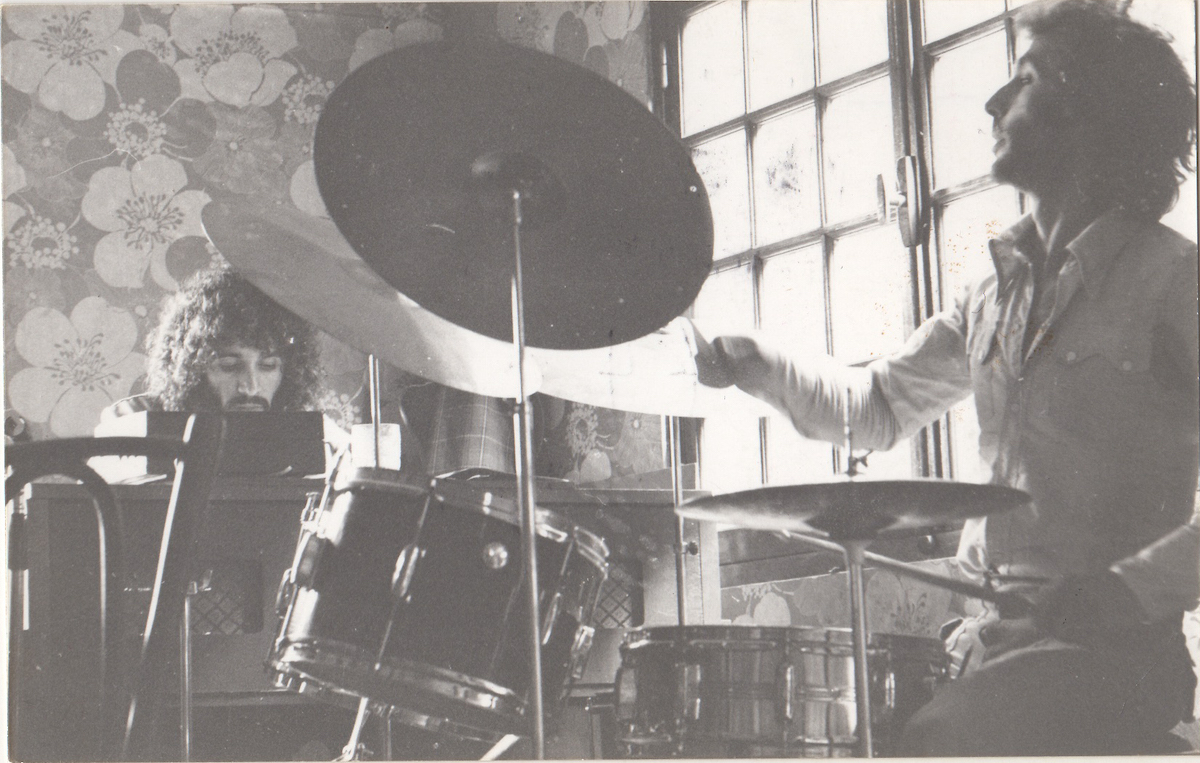
Paris offered the Kabyle diaspora unprecedented creative freedom, and music became an instrument for Shamy and Karim to defend, celebrate, and strengthen their Kabyle identity. At the same time, living in cosmopolitan Paris meant that they came into contact with the wider North African community, whose sounds would increasingly influence the Abranis style, together with the musical trends of the time, from prog to disco.
The two musicians founded Les Abranis in 1967, joining forces with bass player Madi Mehdi and drummer Samir Chabane. Together they experimented by mixing Kabyle vocals and melodies with garage and psych-rock, a style exemplified by compilation opener Athedjaladde and its firm emphasis on guitars, hypnotic organ, and the funkiness of the rhythms. It was this track, together with the swirling psychedelia, chant-like vocals, and hand-claps of Avetheri A L’Afjare, that almost got the band kicked off Algerian national television during the 1973 Festival of Modern Algerian Song. The patriotic event was meant to be a celebration of traditional Algerian culture, so watching these young Berber hippies who’d come all the way from Paris play a strange mix of Kabyle music and rock felt like an affront. The audience were as thrilled as they were dumbfounded by Abranis’ music and garish aesthetic. Nonetheless, Les Abranis’ legend was born, and the band was met with great excitement upon their return to France.
The next few years saw the release of a handful of singles on several France-based North African labels, a raucous Algerian tour, and several lineup changes. Shamy and Karim honed their fiery Kabyle/rock blend on tracks like the spiky, Doors-esque Chenar Le Blues, but as the ’70s progressed they increasingly moved away from the garage and psychedelia of their early days, and began to interpret their Kabyle repertoire in more open and creative ways.
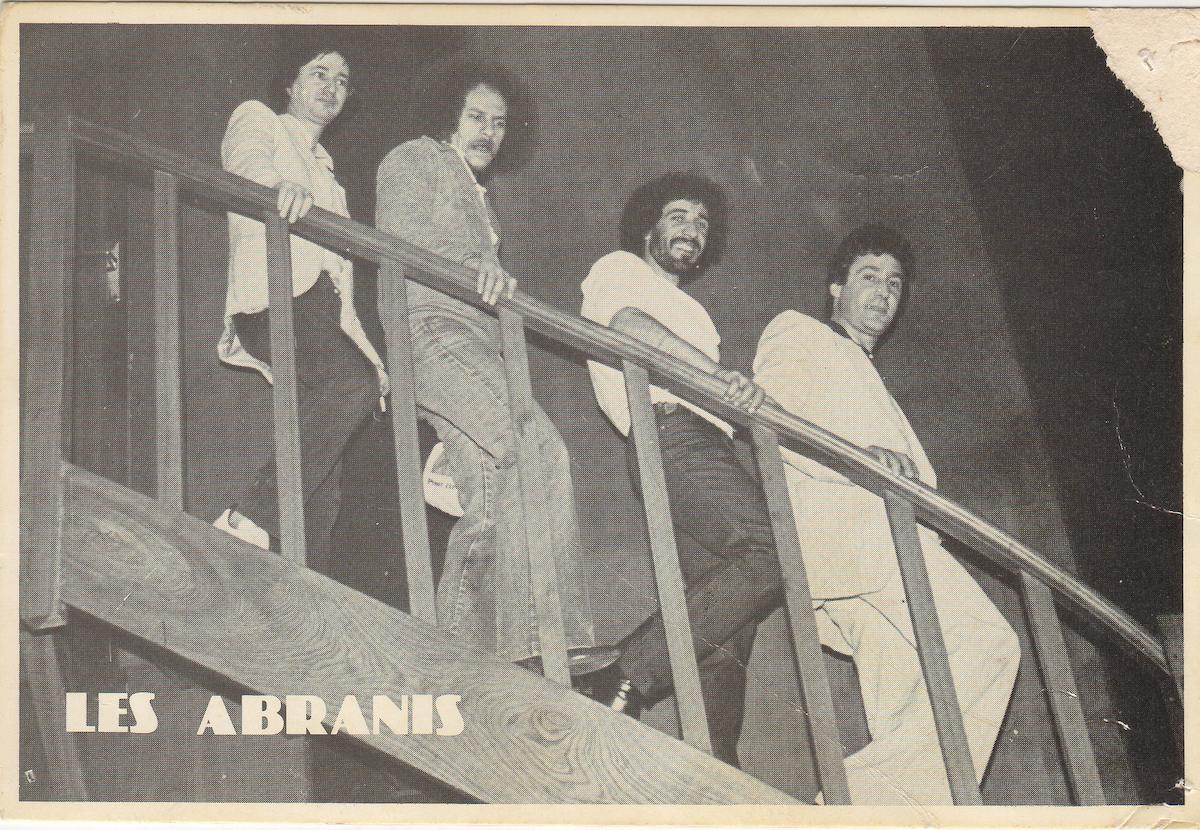
The marching rhythms, spacey synths, and interplay between the sombre male and sensual female vocals on the 1980 synth-disco killer Therrza Rathwemza is an early example of this new approach, which delves even further into their thrilling mix of traditional and experimental. Taken from the same album, the deeply evocative Thillelli reasserts Abranis’ support for the Amazigh cause, its twanging guitars and otherworldly synths infused with subtle pride.
Many of the tracks on the compilation are taken from their 1983 Album N1, the zenith of Abranis’ endeavour to create modern Algerian music infused with the sounds of the world. For this record they enlisted the help of Corsican jazz drummer André (Dédé) Ceccarelli, who also played with Algerian Kabyle superstar Idir, and several top prog rock producers. The result is eclectic but superbly executed, ranging from the North African reggae of Avehri to the experimental arrangements of Achethkhii. Although the album ended up being a mainstream success, the band initially couldn’t even find anyone who’d make it, and had produced it themselves. The tide was turning for modern Kabyle music, and the electrified folk of raï was fast taking its place.
The sun had set on their golden days. For a few years Les Abranis continued touring and making music, but in the 1990s they stopped altogether. Over 11 electrifying tracks, Amazigh Freedom Rock 1973-1983 highlights their legacy as the underground kings of Kabyle rock.”















